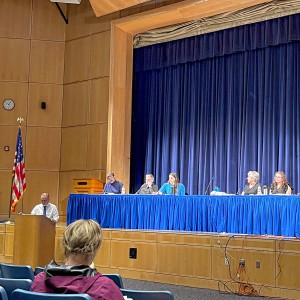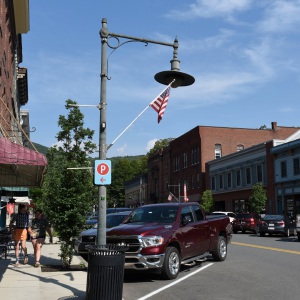My Turn: Juneteenth and a ‘culture of equality’
| Published: 06-19-2023 9:37 AM |
On June 19, 1865, two months and 10 days after General Robert E. Lee surrendered to General Ulysses S. Grant at Appomattox Courthouse, ending the Civil War, and two years and 18 days after President Lincoln signed the Emancipation Proclamation, Union General Gordon Granger arrived in Galveston to announce that the Civil War and the enslavement of African Americans had ended.
Texas, the last state in the nation to end enslavement was, like much of the Confederacy, in no hurry to give up its declared right to enrich itself by exploiting Black bodies. In spite of the generations of horror that enslaved people endured, by the late 1800s, they declared June 19th to be known as Juneteenth, a day to commemorate the end of enslavement.
Until the summer of 2020, I knew nothing about Juneteenth. I wasn’t alone. Before 2020, only Missouri in 1994 and Texas in 1980 recognized Juneteenth as a state holiday. Only when Americans, led by Black Lives Matter, took to the streets after George Floyd’s murder, demanding that this country reckon with its racist past and present, did public attention focus on Juneteenth.
Today, 28 states legally recognize Juneteenth as a public holiday for state workers, and every state in the U.S. has some form of Juneteenth recognition. On June 17, 2021, President Joe Biden signed a law making Juneteenth the 11th federal holiday. Hundreds of corporations including Nike, Zillow and Best Buy are giving their employees a paid day off, while others such Starbucks and Target will remain open while paying their employees time and a half.
And of course, as with so many American holidays, businesses like Walmart are commodifying the holiday to increase profits. Walmart’s newest product, Juneteenth Ice Cream, was pulled from the shelves after a Twitter storm of criticism.
Juneteenth was originally a holiday that focused on family, prayer, and paying homage to ancestors. Red foods and drinks like strawberry soda and red velvet cake symbolize resilience, joy and blood spilled. Today, Juneteenth 2023 has expanded to cities and towns across the U.S. This past weekend Springfield celebrated its Juneteenth Jubilee, and today Amherst welcomes everyone to its third annual “Juneteenth Jubilee on the Common: Our Voices. Our History. Our Vision. Our Stories,” from noon to 6 p.m. And in Greenfield, “Let’s Celebrate Juneteenth” is happening at noon in Energy Park.
Along with the festivities, Juneteenth 2023 is also a reminder that systemic racism and white supremacy pose an ever-growing threat to the freedom of Black people. The wealth gap continues to be a barrier to Black homeownership. Driving, asking a question, calling 911, ringing a doorbell, wearing a hoodie, being in a wealthy neighborhood are only a few of the activities that spell danger for those who are Black.
Racism is a threat to public health. Teaching about systemic racism can get an educator fired. The College Board watered down the Advanced Placement African American Studies Curriculum, in response to the same dangerous disinformation campaigns that discredit intersectionality, critical race theory, and other perspectives that challenge white supremacy. Black people continue to be enslaved through the criminal (in)justice system. And the list goes on …
Article continues after...
Yesterday's Most Read Articles
 Bridge of Flowers in Shelburne Falls to open on plant sale day, May 11
Bridge of Flowers in Shelburne Falls to open on plant sale day, May 11
 As I See It: Between Israel and Palestine: Which side should we be on, and why?
As I See It: Between Israel and Palestine: Which side should we be on, and why?
 $12.14M school budget draws discussion at Montague Town Meeting
$12.14M school budget draws discussion at Montague Town Meeting
 Greenfield homicide victim to be memorialized in Pittsfield
Greenfield homicide victim to be memorialized in Pittsfield
 Fogbuster Coffee Works, formerly Pierce Brothers, celebrating 30 years in business
Fogbuster Coffee Works, formerly Pierce Brothers, celebrating 30 years in business
 Streetlight decision comes to Shelburne Town Meeting
Streetlight decision comes to Shelburne Town Meeting
My efforts to learn about Juneteenth left me with some nagging questions.
How can Juneteenth simultaneously be a celebration of the end of slavery, while Black people continue to be enslaved by racist policies that maintain inequality?
Do I, as a white person, have a right to celebrate Juneteenth, given the many ways I have benefited from white privilege?
My research led me to suggestions for how to commemorate Juneteenth:
■Educate yourself about Juneteenth.
■Get involved with an anti-racism, pro-intersectionality organization, like Freedomtolearn.net.
■Buy a banned book from a Black-owned bookstore and give it to a school or a special person. Try Olive Tree Books in Springfield. Bookshop.org has a list of Black-owned bookstores in every state.
■Consider attending a Juneteenth celebration today in Amherst, Greenfield, or wherever you are.
■Support Black-owned businesses and restaurants. You can find them through Google.
■Spend some time reflecting about the meaning of Juneteenth for you.
■Read Frederick Douglass’ speech, “What to the Slave is the Fourth of July.” Better yet, read it aloud with others at Historic Northampton on Sunday, July 2, at 11:30 a.m.
Learning about Juneteenth has inspired me to reflect on how I can contribute to realizing a culture of equality. July 4th, Independence Day, is approaching. It’s painful to realize that this country’s fight for freedom took place at the same time our nation’s leaders were enslaving Black people. Juneteenth commemorates the resilience, strength, and perseverance of enslaved men, women, and children who built this country, as well as their descendants, who are activists for a just and inclusive America.
Sara Weinberger of Easthampton is a professor emerita of social work and writes a monthly column. She can be reached at columnists@gazettenet.com.

 Guest columnist Gene Stamell: We know what we know
Guest columnist Gene Stamell: We know what we know Michelle Caruso: Questions candidate’s judgment after 1980s police training incident
Michelle Caruso: Questions candidate’s judgment after 1980s police training incident Kathy Sylvester: Vote for expertise on May 6
Kathy Sylvester: Vote for expertise on May 6 Shirley and Mike Majewski: Vote for Blake Gilmore
Shirley and Mike Majewski: Vote for Blake Gilmore
